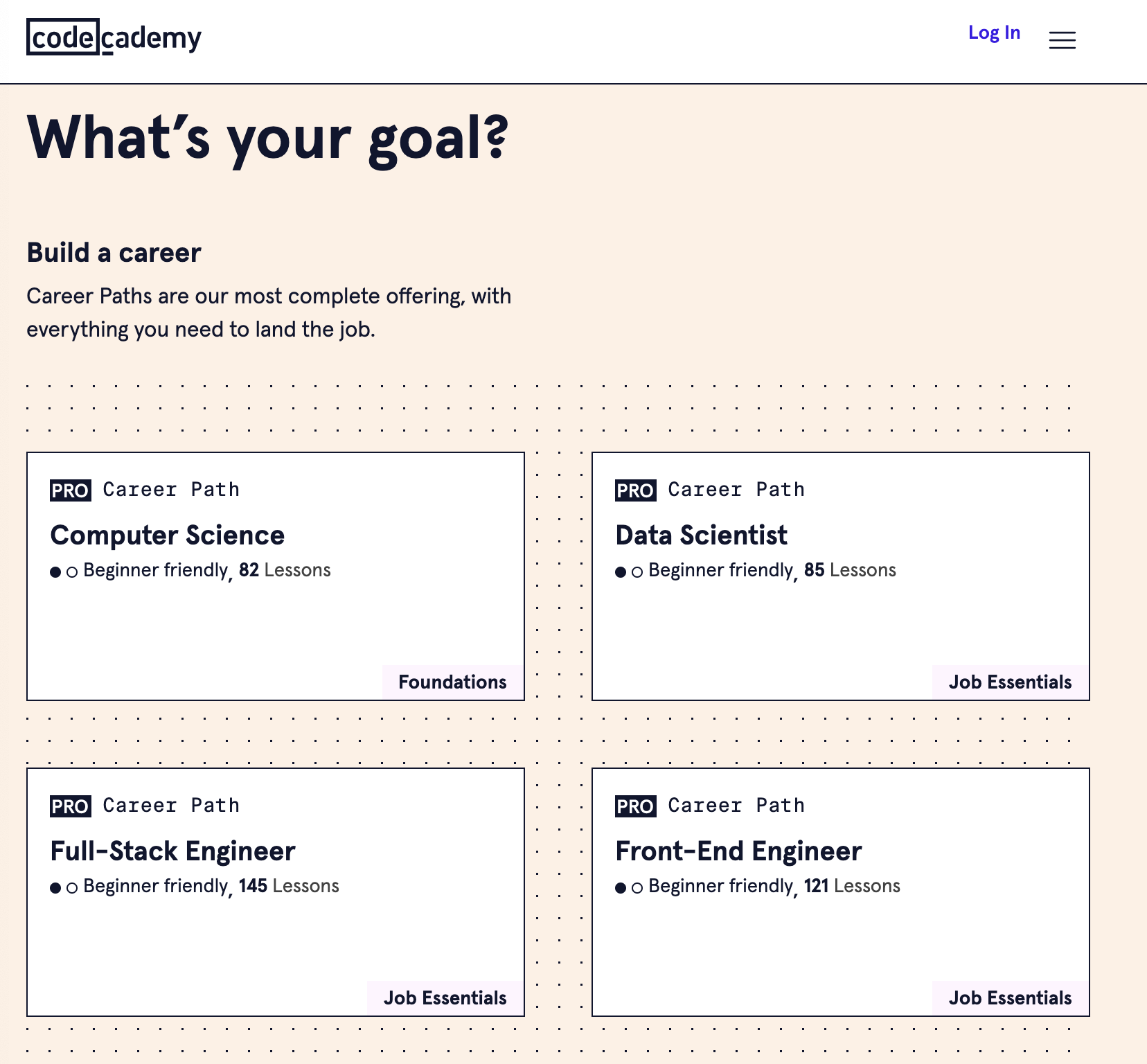Welcome! I’m Will 👋 and I’ve been a software engineering professional for 10+ years. During that time and in my role as Head of Engineering at Attest (at time of writing), I’ve supported engineers from a wide variety of backgrounds to establish a career and progress within software engineering, including those who don’t have a traditional relevant degree.
This article intends to provide guidance to those seeking a career developing code without holding a degree, to highlight the many routes in available, whilst talking about some of my personal experiences along the way.
You may wish to check out my previous article, Choosing a Career - Where to Start? , where I talk about some tips on how to choose a career thats right for you.

If you’re looking to start a career in software engineering, you’re in luck. With the increasingly high demand for software engineers, there has never been a better time to learn how to code. But you may wonder about the requirements to start on this journey and what is needed to be successful as a software engineer.
I can tell you that it is not essential to have a degree to have a successful career in software engineering.
This might seem surprising. In fact “Do I need a degree to be a software engineer” is probably the most common question I get from people who want to be a software engineer. Years ago you probably did need a degree for the majority of roles, but times have changed.
You don’t need to have a degree to do a lot of jobs requiring one historically. Software engineering is no exception, companies and hiring managers have realised that there are many different ways to gain the knowledge to be great on the job, degrees being just one possible route. This shift has been partly driven by three forces:
Supply and Demand. Software engineers are one of the most in-demand professions in the world. The need for complex software has never been greater as globally more and more products utilise and rely on technology. There are simply not enough software engineers to fill this exponential demand, especially through the traditional avenues like University, leading employers and organisations to innovate and consider other ways to train the next generation of engineers.
Diversity. In the UK, just over half of those working in professional occupations are women, but that falls way down to one in eight(!) within software development. As a society we’ve done a terrible job of promoting subjects such as the sciences, engineering, and maths to young women. This is coupled with a long history of gender stereotyping and a shortage of role models within the same subjects, exasperating the problem. Fortunately the lack of diversity here is beginning to be addressed, with governments making changes to school curriculums and companies asking themselves how they can promote and champion diverse talent.
The prevalence of common sense. There are other ways to build capability then spending three years in a class room environment learning a thing. It’s easy to see how this is not for everyone.
Disclaimer: Just because you don’t need a degree to acquire the knowledge you need to be successful in software engineering, that doesn’t mean it’s a bad idea to pursue one, it can be a very good option. Depending on your situation going away to University has other benefits such as gaining a taste of independent living, meeting others in a social setting, and building other high-level transferable skills. Personally I do hold a degree and I went to University for these extra-curricular benefits, because I hadn’t done these things previously. These skills are not exclusive to University though and I talk to a lot of people who have experienced much of this elsewhere in life, making University a less attractive option for them.
Fortunately there are other options, many of them, these are a few that I’ve seen to be really effective at building the skills required to be a software engineer. I’ve hired many Engineers who have been through these exact courses or programmes, and they’ve gone on to be very successful Engineers 🚀.

Self-training online
Try coding for real! I can’t recommend this enough.
Practicing through free or paid online courses is a great way to build your skillset. Give it a go and see if you enjoy writing software and perhaps even build your own website or app (which you can talk about and show off to employers down the line 😉).
There are tons of online (and mostly free) interactive coding tutorial websites, here are a couple that I think are particularly good:
freeCodeCamp - Learn to code for free, build projects, and earn certifications. They impressively state that “Since 2014, more than 40,000 freeCodeCamp.org graduates have gotten jobs at tech companies".
Codecademy - Another great resource for learning to code and they offer online courses for multiple coding languages. I particularly like their goal orientated courses where you can select the career path that may be best for you. This is a ‘Pro’ option, which costs money, but they have plenty of freebies available too and discounted student plans.

Apprenticeships
Apprenticeships are a relatively new option, at least for software engineering, but becoming more common at predominantly larger companies so far. This is a government backed scheme in the UK where employers typically get a ‘levy’ or payment to help support hiring apprentices, who are then trained on the job and get a nationally recognised qualification at the same time.
In order to be eligible, I understand that you need to be 16 or older, not in full time education, and you can’t hold a qualification at the same level or above as the one you’d acquire on the apprenticeship.
Check out the government website on apprenticeships for more info and to search opportunities.
There are also companies like multiverse who offer an apprenticeship package which includes the apprenticeship itself alongside other training and guidance.
Bootcamps
Bootcamps are offered by several companies and tend to be a full-time intensive course, designed to equip you with the foundational skills required to land a junior job at a tech company. These usually last for 12 weeks however most now offer flexible and part time options too.
This is the most popular option I’ve seen and many companies hire engineers from these bootcamps. There is a high cost to enrol on the courses (£5-10k), though they do often offer financing options and discounts for women or gender minorities.
I’ve hired and managed many engineers that have started on bootcamps, who have all been really positive about the experience.
You are guided by the bootcamp company at every step of the way throughout the course, they even help you match with a company at the end and make sure your CV and interview skills are sharp.
There are a bunch of bootcamps available, these are a few that have stood out for me:
Makers Academy - Makers are well established and boast that you can earn £30-35k in your first role after the bootcamp, which if anything is an underestimation in the current job market. Definitely worth a look, I’d recommend logging on to one of their weekly online events to find out more.
General Assembly - Another well regarded company that have been on the block for some time. “With 12k+ hires, we’ve placed more grads in high-growth, high-pay tech careers than any other coding bootcamp.”
Flat Iron - Flat Iron offer courses across software engineering, data science, cybersecurity, and product design.

Consider adding some power-ups to help you along your journey 👊.
One such power-up is to grow your network. Find and talk to like-minded people who are just starting their journey and longstanding professionals who have been through it all. LinkedIn is your friend here.
Like I said in my previous article , you’d be surprised how willing people are when it comes to giving advice.
Attend events, build connections, and ask questions. Nearly all of the bootcamps listed above host either physical or online events for people wanting to find out more.
Show off your coding projects to-date, no matter how small or trivial, on GitHub (or simply learn about how to use Git and GitHub). Employers really value the enthusiasm and credibility this gives you, and its a great way to build your own portfolio.
Good luck! Finally, don’t be scared to talk about your story and embrace your journey so far. It’s all fantastic experience, not only does shouting about it help others to follow a similar route, but employers will be pleased to hear it 🙌.